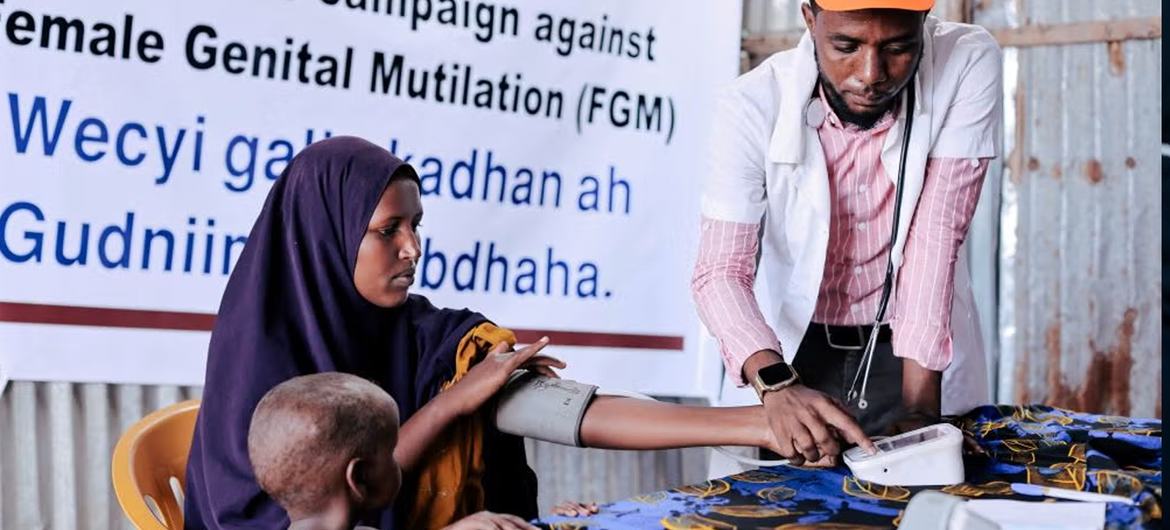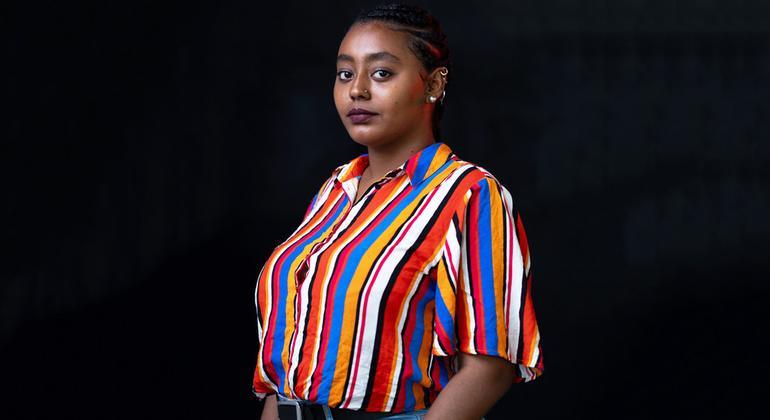Zeinaba Mahr Aouad, a 24 -year -old woman from Djibouti, remembers the day when, at ten, an unexpected visitor came to her house: “She had a syringe, a blade and razor bandages.”
The woman was there to carry out a brutal operation, useless and – since 1995 in the country of the Horn of Africa – an illegal operation known as the female genital mutilation, which consists in sewing the vagina of a girl and Cut your clitoris.
Even if Zeinaba’s traumatic experience darkened her memories of this day, she always remembers the feeling of intense pain once the effects of anesthesia had dissipated.
Hard to walk
“I had a hard time walking and when I urinated, it burned,” she said.
His mother told him that it was nothing to fear and spoke of the degradation procedure in terms of importance of tradition.
Like many MGF victims, Zeinaba has come from a vulnerable and mediocre environment, living in one room with her mother and two sisters in a dilapidated Djibouti City district.
“There was just a television, suitcases where we stored our clothes and mattresses we slept on,” she recalls.
His mother sold a flat bread to passers -by, while Zeinaba played with a jump rope with friends. “We also played in dirt.”
230 million mutilation
Zeinaba Mahr Aouad, 24, a resident of Djibouti, survived female genital mutilation at the age of 10. Now a volunteer for the “Elle & them” network, with the support of UNFPA, it requests its neighborhood and other practice.
Some 230 million women and girls worldwide have undergone mutilations according to data published by the United Nations Sexual and Reproductive Health Agency, the FNUE, and it is increasing as younger children, sometimes less than five years, goes under the knife.
“A baby does not speak,” said Dr Wisal Ahmed, specialist in MGF at UNFPA.
It is often considered a unique procedure, but in reality, this implies a life of painful procedures that continue to adulthood.
“The woman is again cut to have sex, then sewn together, then reopened for childbirth and closed again to reduce the orifice once again,” said Dr Ahmed.
Approach harmful traditions
The UNFPA and its international partners have worked to put a final end to the MGF and although these efforts have contributed to a constant drop in rates to which the procedure has been carried out in the past 30 years, the global increase in the population means the Number of women affected really develops.
The UNFPA continues to work with communities that still engage in the practice on short and long -term effects.
The agency’s work has been supported worldwide for a number of years by the United States government, which has recognized MGF as a human rights violation.
This is not a problem that affects only developing countries. According to figures from the US State Department in the United States itself, around 513,000 women and girls have suffered or are at risk of MGF.
Men’s support
In Djibouti, in 2023, the United States provided approximately $ 44 million in foreign aid.
The UNFPA confirmed that FGM programs supported by the United States have not yet been affected by current working orders, adding that “US support for UNFPA in the past four years has resulted in about 80 000 girls avoiding female genital mutilation ”.

The UNFPA supports the MGF awareness campaigns in Africa, including in Somalia (photo).
Local networks
Zeinaba Mahr Aouad is now working as a volunteer for a local network launched by UNFPA in 2021, which has more than 60 women and provides support for local health and women’s rights.
She also visits Djibouti’s disadvantaged areas to raise awareness among young people and future parents, women and men, harmful effects of the MGF.
“Because it is not only the woman who participates in these practices: without the agreement of the man by his side, it could not be done,” she said.




